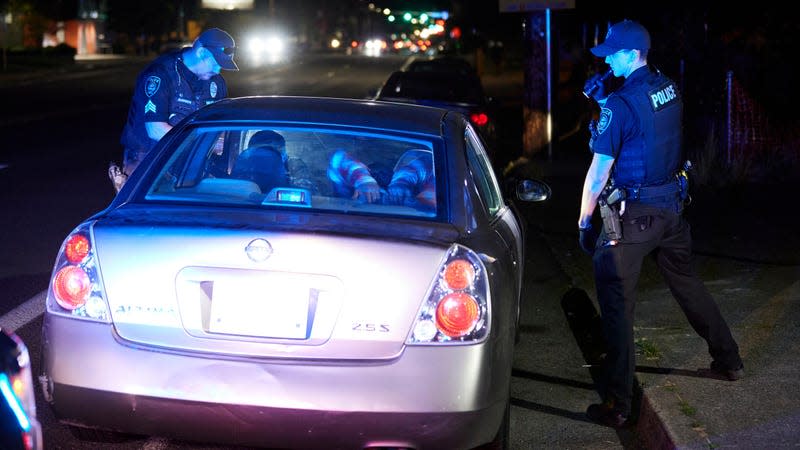Oregon Forgives More Than $1.8 Million in Unpaid Traffic Fees

Oregon Governor Kate Brown announced her office is forgiving $1.8 million in unpaid traffic fines Wednesday in order to help financially struggling residents life restrictions on driver’s licenses.
In October of 2020, Oregon made it illegal to suspend driver’s licenses due to nonpayment of fines. This order covers people with outstanding debts from before the bill was signed into law. It does not cover misdemeanor or felony traffic violations or eliminate any money meant for victims. From the Oregon Capital Chronicle:
Read more
“The inability to pay a traffic fine should not deprive a person of the ability to lawfully drive to work, school, health care appointments or other locations to meet their daily needs,” Brown said in a statement. “We know that suspending driver’s licenses for unpaid traffic fines is bad public policy – it is inequitable, ineffective and makes it harder for low-income Oregonians to get ahead.”
[...]
Civil rights advocates praised the move, saying it’s necessary to end systemic discrimination that hurts people unable to pay traffic fines.
“People of color are disproportionately targeted in traffic enforcement meaning they are more likely to be ticketed and receive a traffic fine,” Sandy Chung, executive director of American Civil Liberties Union or ACLU of Oregon, said in a statement. “Persistent racial discrimination in public and private life, as well as enduring racial disparity in economic opportunity, means people of color are more likely to be low income. This means that it is more widespread for people of color to have a driver’s license suspension due to inability to pay a ticket. They are more likely to be trapped in a cycle of debt, punishment and restricted freedoms than wealthier and whiter people.”
Traffic fine violations are the most common police-citizen interaction, and they disproportionately affect poor people and people of color. Such fines can hold people back, as not having a driver’s license can hamper employment opportunities or put people who drive anyway at risk for being charged with driving without a license. And it’s no just an Oregon problem. From the Atlantic:
America’s flat-fine model also disproportionately burdens racial minorities, who are poorer on average and more likely to be pulled over. In many American cities, police are more likely to stop, ticket, and search people of color. In the Cleveland, Ohio, suburb of Newburgh Heights, for example, Black residents make up 22 percent of the population but 76 percent of license and insurance violations and 63 percent of speeding cases. And for Black Americans, routine traffic stops can turn deadly, as the police killings of Philando Castile, Maurice Gordon, and Daunte Wright each demonstrate. For this reason, recent police-reform initiatives in cities such as Berkeley, California, have focused on ending police involvement in the traffic stop. But one alternative, automated camera enforcement, risks entrenching and accelerating the criminalization of poverty. The camera enforcer might ticket without bias or violence but will also likely issue more tickets.
[...]
In many modern American states, low-level traffic offenders face both physical danger and financial ruin. In 2019 in Rochester, New York, Desiree Barron was rushing home to take her insulin when she was pulled over for speeding. During this stop, she learned that her license had been suspended because of more than $3,000 in unpaid tickets. Police arrested Barron and ignored her requests for insulin. In jail, cut off from her medication for days, she nearly died before her doctor and public defender intervened, according to a 2019 lawsuit. In December 2020, then–New York Governor Andrew Cuomo signed a bill ending driver’s-license suspensions for unpaid traffic fines. But compounding fines, and the practice of jailing debtors, continue in New York and many other states.
Traffic stops are coming under increasing scrutiny, and not just for saddling poor people with perpetual debt. Lawsuits against a department accused of conduction frivolous traffic stops are helping highlight just how little power the average person has to protect themselves. And another suit in front of federal court for the first time will decide if passengers in cars have a right to record or livestream stops. Of course, a case could be made to end all traffic stops, but we’ll get there when we get there.
More from Jalopnik
Sign up for Jalopnik's Newsletter. For the latest news, Facebook, Twitter and Instagram.

 Yahoo Autos
Yahoo Autos 